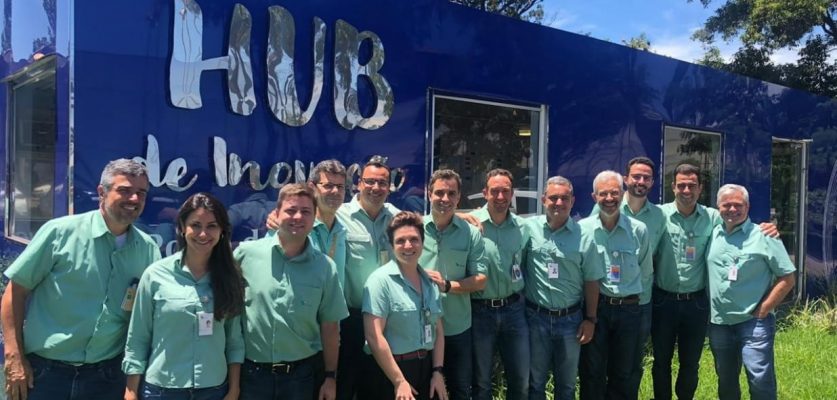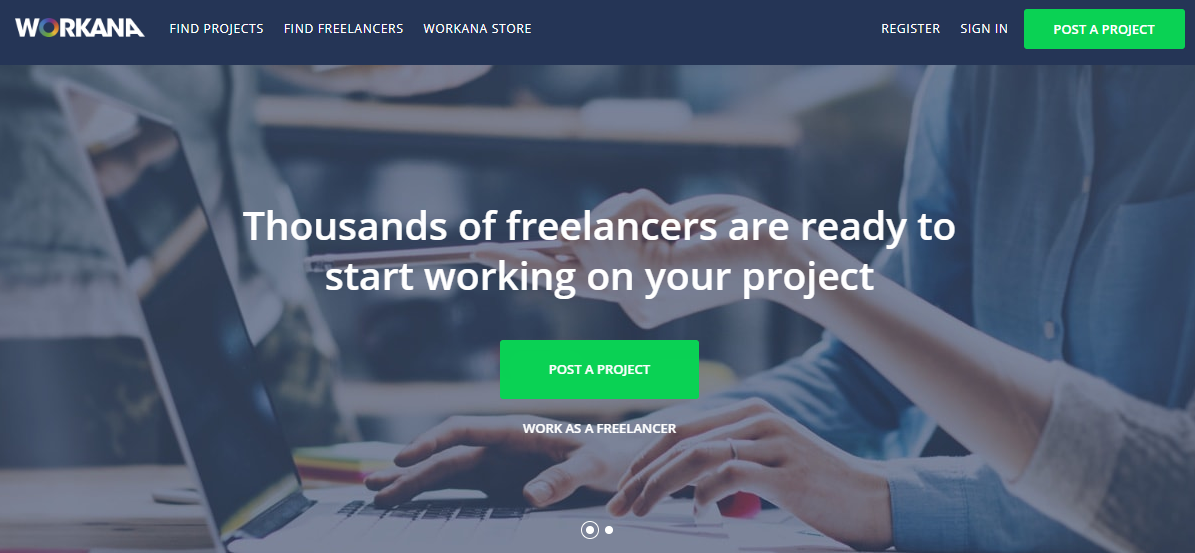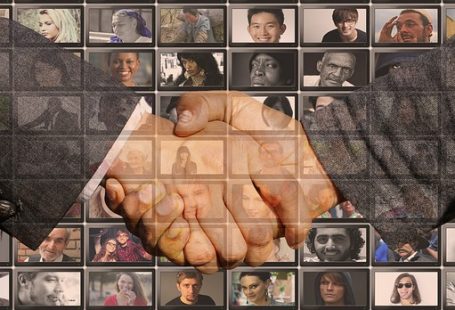In one corner, we have Brazilian multinational corporation Vale, one of the largest companies in the mining sector and the largest producer of iron and nickel in the world with over 75,000 employees. In the other corner, we have Deloitte, an American multinational corporation that conducts auditing processes and provides consulting services to companies around the world with over 150 years of history and 320,000 employees.
Almost two years ago, Vale began undergoing a digital transformation with Deloitte’s support that involved designing processes, methodologies, and action standards. The objective of this project was to rely on technology as a means to improve the digital tools and generate sustainable results.
Maria Emilia Peres, the Head of the Innovation Hub at Vale, and Rafael Ferrari, the head of Digital Transformation at Deloitte and Professor of Lean-Agile and Innovation are leading this project. Peres and Ferrari shared how seeking out creativity, agility, and innovation were fundamental to improving processes in a sustainable and continuous manner through an agile mindset during quarantine.
Two Versions of One Method: Remote Work.
At Deloitte, distance working is nothing new; it’s a well-established practice because employees spend a significant amount of time traveling. Remote work was already a familiar internal practice; in fact, the company encouraged employees to work from home so they could be closer and more present for their families when they weren’t at the office.
But the situation at Vale was very different before the pandemic. In the company’s corporate sector, employees discussed the possibility of working remotely a few days a week with their manager. This reality wasn’t as common in the operational area of mining because it isn’t a common market practice in this sector.
Facing these two situations, Vale’s digital transformation project formed by a Hub adopted a hybrid model so project members would act as transforming agents within the company and promote this practice in other areas. The idea was that they would serve as an example and become agents that would propagate this culture.
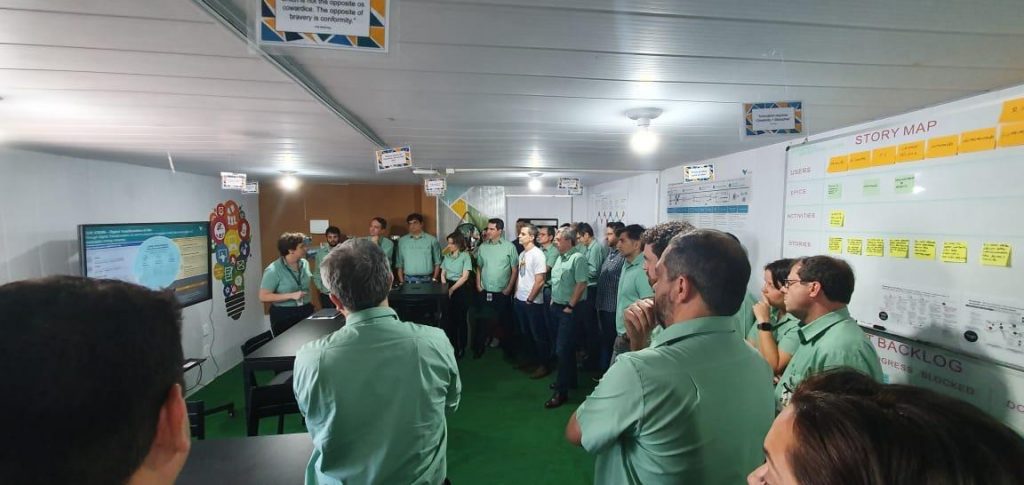
During the Digital Transformation process, the focus has always been on productivity and delivering value instead of focusing on an employee’s physical presence. This culture came to be so everyone who was involved would fall in love with problem solving. The focus was placed on changing mentalities and looking beyond the walls of the office, observing the outside world, making change possible, and incorporating new ideas into a culture as traditional as the mining industry.
Quarantine has shown that it is possible to shift paradigms and make progress in a short period of time. To give you a better idea of what we’re talking about, a digital transformation process usually takes about six years to change a company’s culture, but during the last few months, even at a distance, Vale has been able to make progress with a lot of processes that they never thought possible.
With an Agile mindset established, the negative impact was minimal because they were prepared for the change. During the first week of lockdown, Vale carried out an online training with the entire Innovation Hub team, teaching the team how everything would work remotely, and from then on, they began to replicate the model throughout the entire organization.
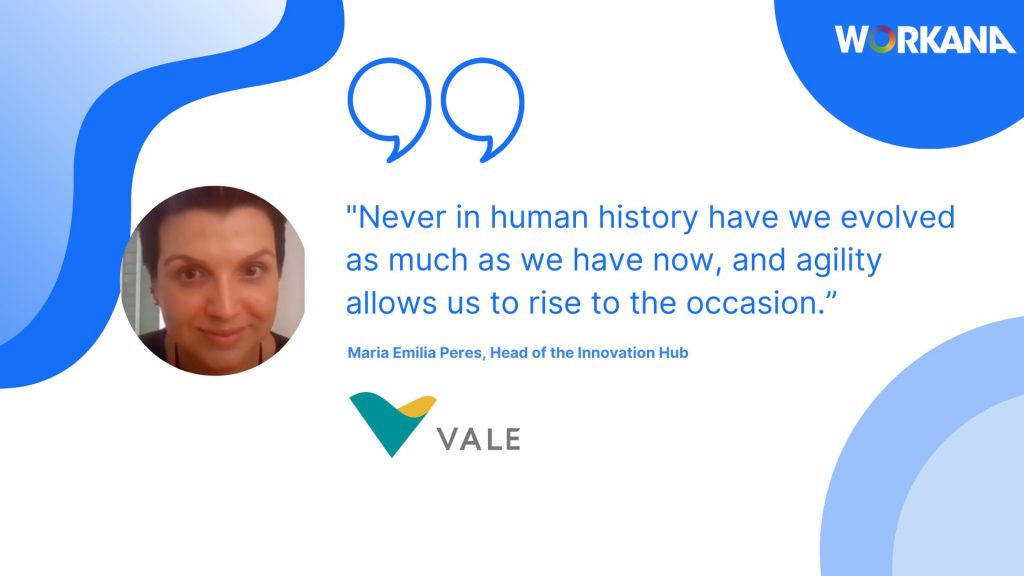
An Employee-Centered Culture: Vale’s Key to Success
The biggest challenge for the mining company has always been centered around the employees: What can we do so people feel less impacted and make everyone feel like they belong to the movement at the same time? What can we do to assuage the fear of making a mistake with a deliverable or feeling like we’re being less productive than we should be?
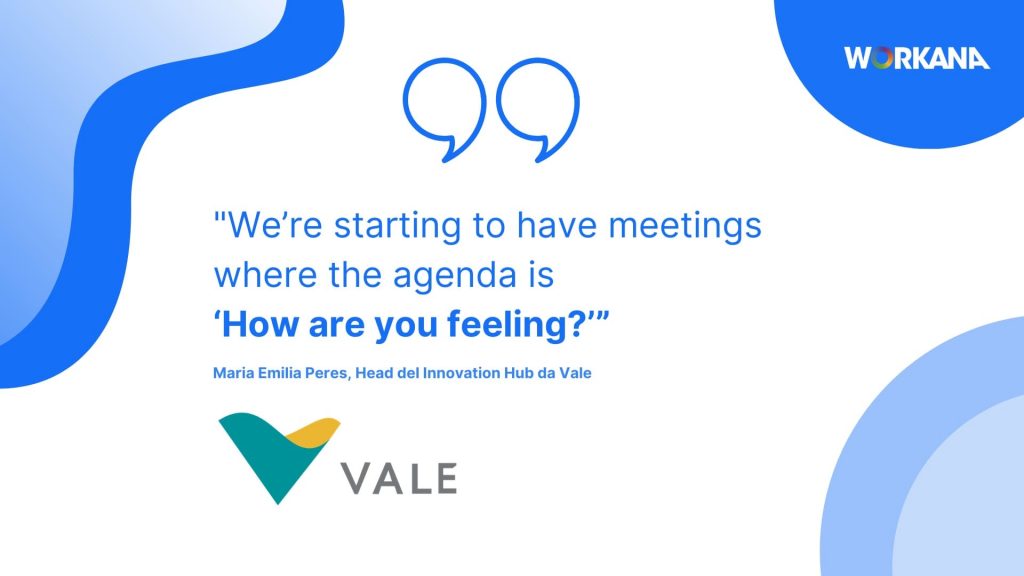
Once again, the key to success is empathy. Empathy for people and for everyone’s infrastructure at home, ranging from internet access to ergonomics. Given that most of Vale’s employees had never worked remotely, it made sense that most employees didn’t have comfortable chairs that they could work in throughout the day.
To accommodate this, the company made an investment for every employee to buy a good work chair. The company’s technology department has worked tirelessly since the beginning of quarantine with over 20,000 remote accesses, VPN access, computers, and software updates.
In the middle of all this, they created a program called “Home Office na Real” (The Real Home Office) with daily segments to help employees face this new set of circumstances.
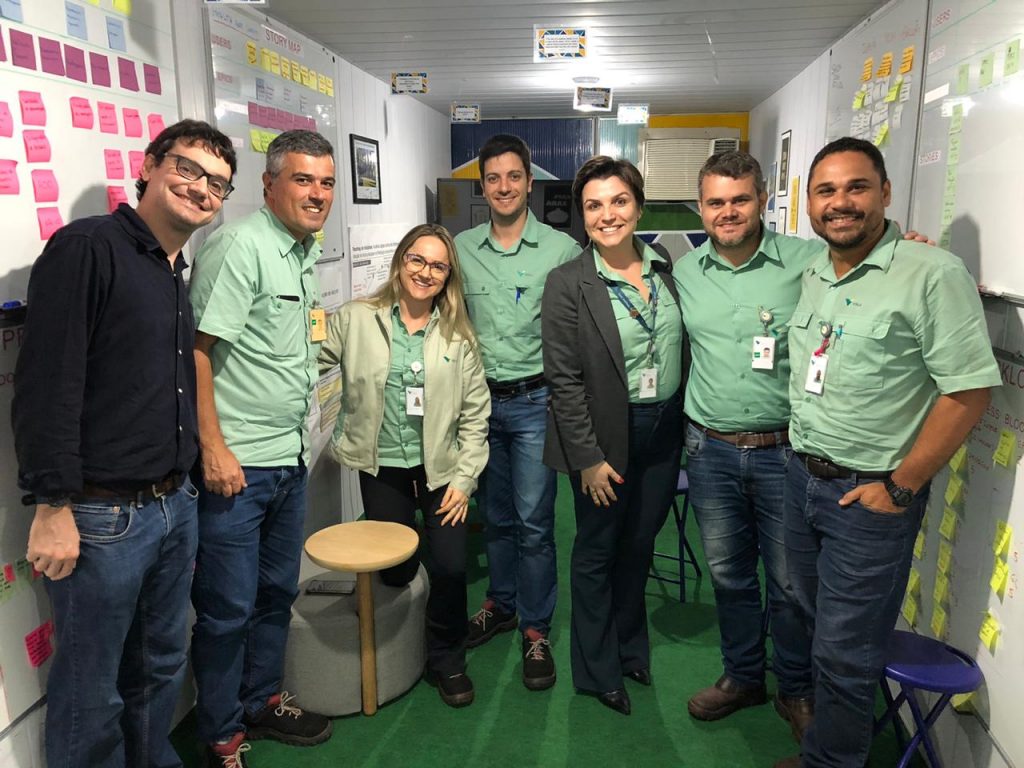
They’ve established support channels, offering psychological help, webinars on productivity, how to create a Home Office, along with interactive coffee breaks, morning meetings to establish a relationship between Deloitte and Vale, and other initiatives designed to take the focus off work for a bit and make everyone feel important by making time for everyone.
It’s important to keep in mind that Vale is a company that can’t stop because it provides essential services. It’s crucial to show gratitude to everyone who leaves their home on a daily basis to go to work without letting the company come to a halt. For those who were working remotely, Vale focused on the company’s leadership so they could provide their teams with the right support.
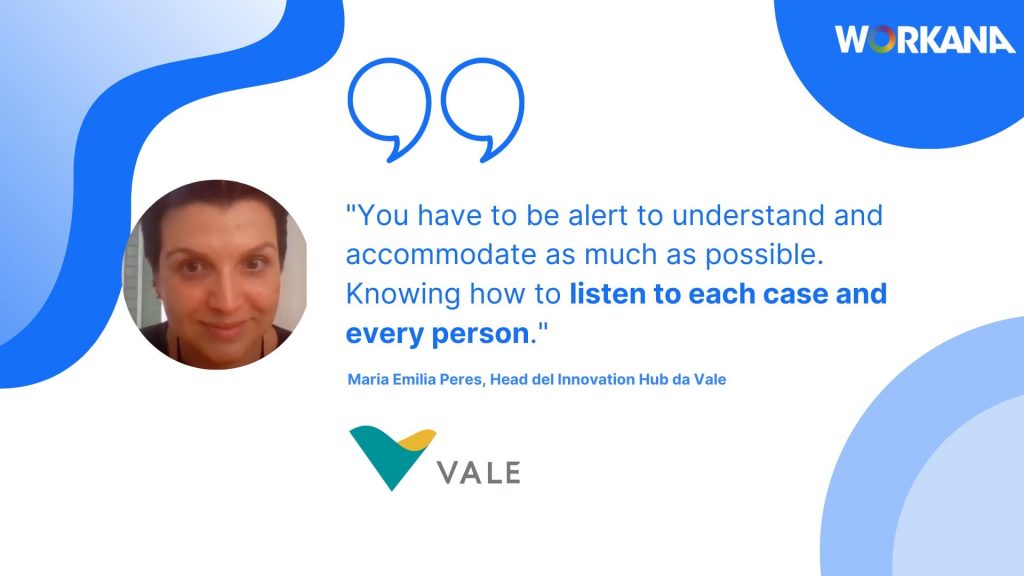
Challenges, the Future, and the VUCA World
The grand opening of a new innovation center was scheduled for May of this year, and one of the pillars established for this project was establishing a physical structure so those involved in the project could exchange ideas and share their expertise. But how could they innovate and create this center under this new set of circumstances?
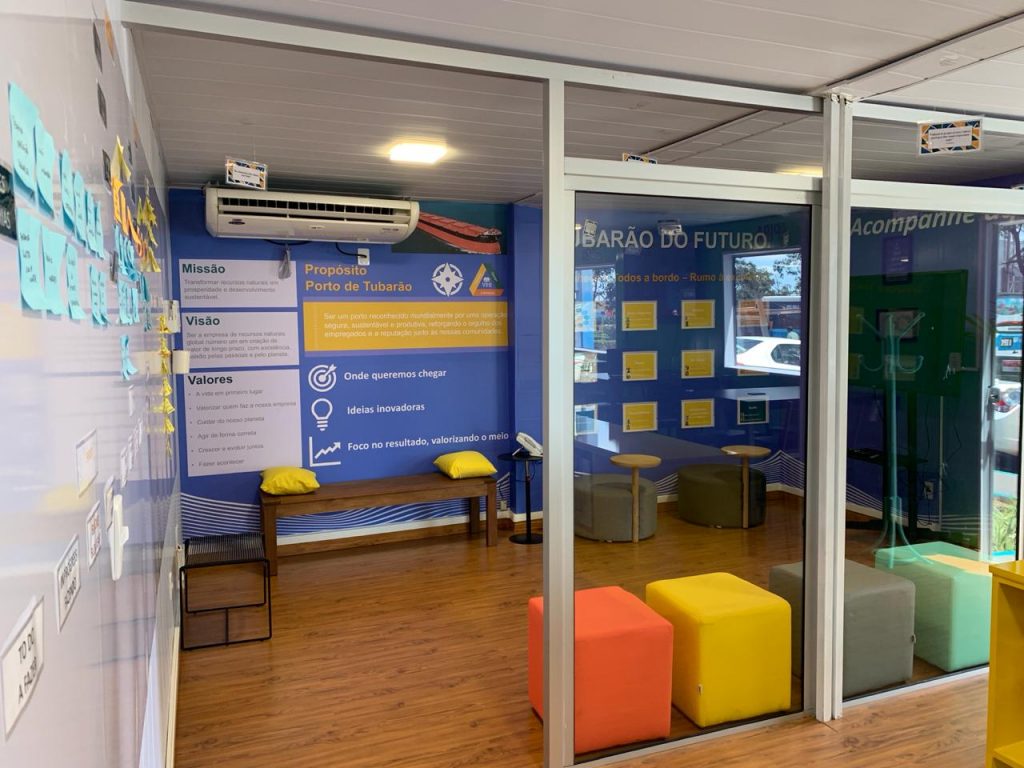
They started by training the management team through interactive games, and in two weeks, all of the training was 100% online. Communication tools such as Microsoft Teams became essential to carrying out online group dynamics, and they even successfully implemented the design thinking process.
And so Virtual Hub was born with the entire team communicating through groups on the communication platform. People are more open to being online in this situation. The camera isn’t an obstacle.
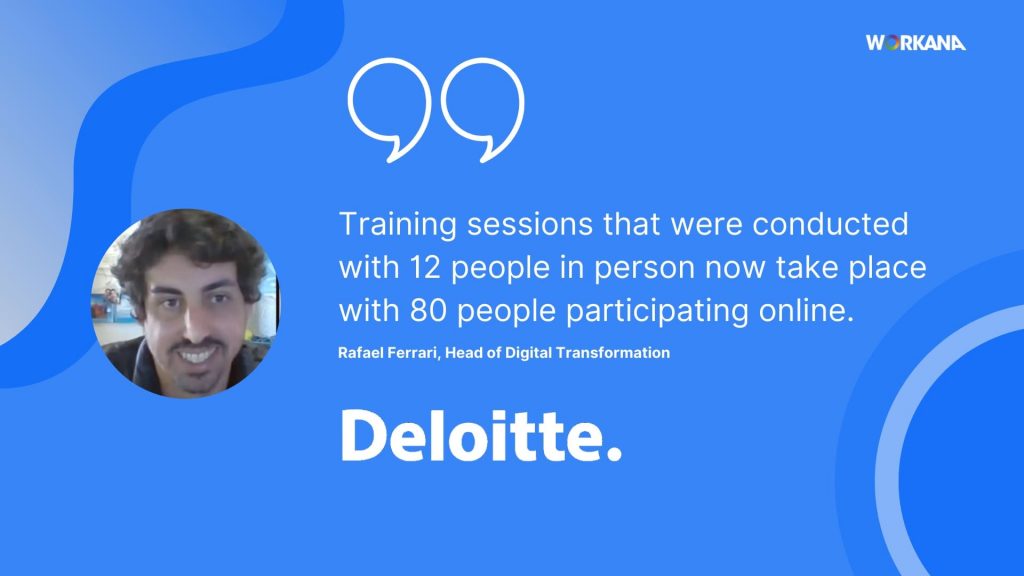
With so many people meeting in the same virtual room, prior work became vital to everything working and being done correctly for any webinar or training. Given this situation, a lot of people ended up contributing behind the scenes.
In 2019, Deloitte conducted a survey to determine the need for digital transformation within companies. This study was called “Insights about Digital Transformation and ICT Opportunities for Brazil“, and it indicated that 94% of the companies interviewed put digital transformation as a strategic direction.
But when other data analyzed, only 50% of CEOS believed that digital transformation could add value to companies.
Within a short period of time, everyone began doing things differently and demonstrated that while Digital Transformation will definitely add value to companies, we have to be careful and do everything correctly.
—
You might also be interested in:
- The Power of Remote Work in the New Low Touch Economy
- Digital Transformation: Can remote professionals be the key to taking the next step in your business?
- How Catho Got 500 Employees to Work Remotely in One Week
- Why it is important to support your remote work teams 100% to grant their success
- Gympass Tells us All About How Their 100% Digital Communication Strategy Created a Sense of Closeness in Times of Social Distancing
- Teamwork: Identifying Each Member’s Potential
- [Downloadable material] Remote Work Guide
